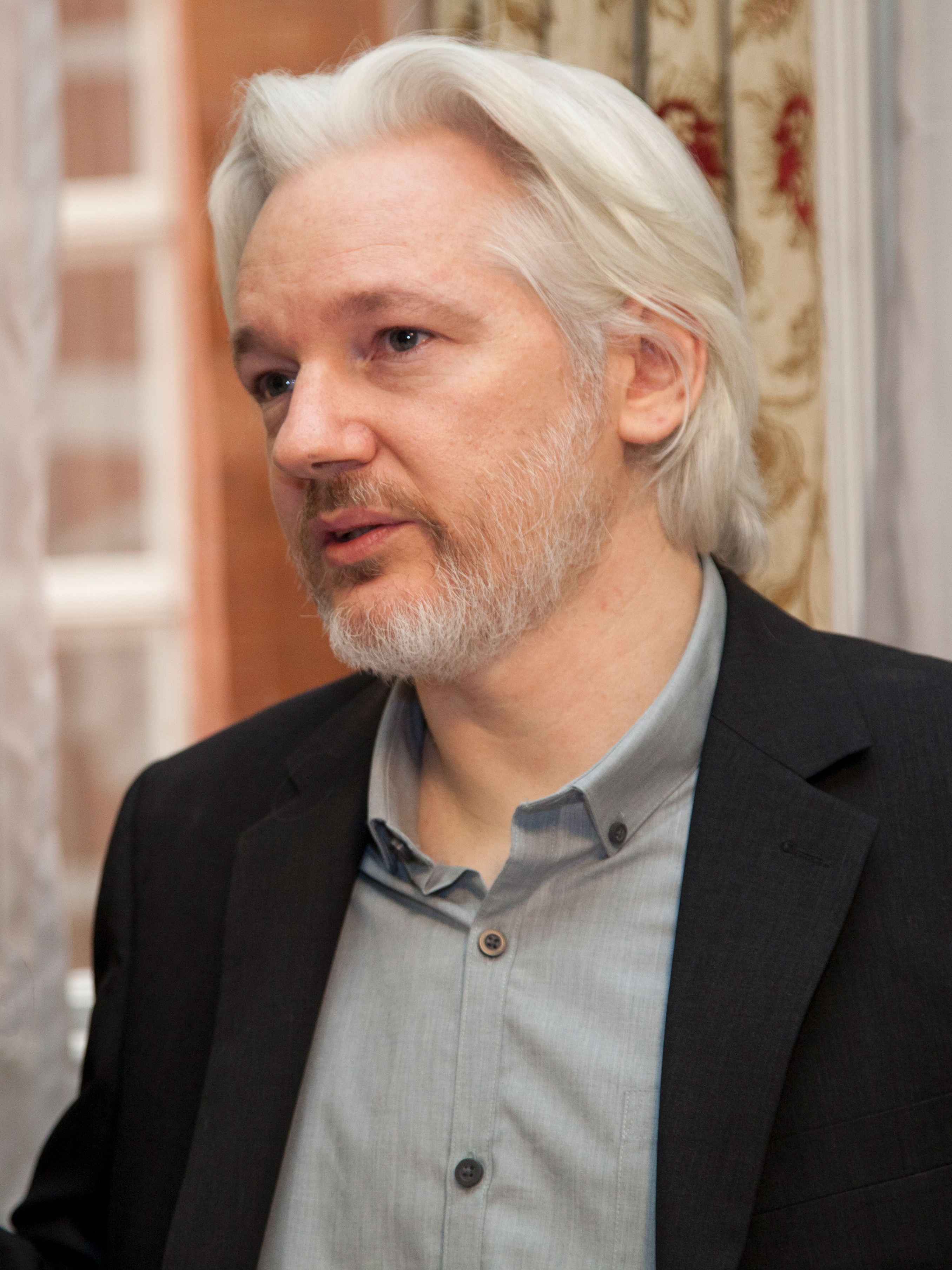![]()
Julian Assange is an Australian computer programmer, journalist, and the founder of WikiLeaks—a clearinghouse media organization that serves as a hub for whistleblowing and the publication of classified government documents. Assange is currently being held at Belmarsh Prison in southeast London, where he has been awaiting extradition to the U.S. since April 2019 on an indictment of espionage for the publication of classified documents.
Assange received his initial indictment back in May of 2019, in which he was accused of seventeen counts of violating the Espionage Act of 1917. The indictment alleged that Assange assisted US Army intelligence analyst Chelsea Manning in obtaining classified information at the peril of US national security. According to Assange’s lawyer, Barry Pollack, the charges are unprecedented and will imperil “all journalists in their endeavor to inform the public about actions that have been taken by the U.S. government.” While the indictment focuses on Assange’s alleged cooperation with Manning, there are clear first amendment implications that must be acknowledged and addressed.
This is not the first time the US government has butted heads with journalists, but there is something different this time. Given the context of Assange’s indictment and the law under which he is being charged, the stage is set to establish a devastating precedent for domestic and international journalistic freedom. If Assange is extradited and convicted under the indictment, the effect will be twofold. First, it will overrule an existing legal precedent that shelters journalists and news organizations against censorship from the US government; second, it will cast an oppressive shadow over independent journalists worldwide. If the espionage act is used to prosecute an independent foreign journalist under the guise of national security concerns, what’s to stop the same thing from happening to anyone who publishes classified information in the interest of exposing corruption?
The existing precedent for this issue is New York Times Company v. United States. The details of the case are as follows: By 1971, the United States had been engaged in an undeclared war against North Vietnam for six years. In 1967, Robert S. McNamara, the Secretary of Defense, commissioned what was to become known as the Pentagon Papers, a 47-volume 7,000-page document outlining the history of the United States’ role in Indochina. In March of 1971, 41 volumes of the document were leaked to New York Times reporter Niel Sheehan by military analyst Daniel Ellsberg. The first installment of the publication appeared in the New York Times Sunday edition on June 13, 1971. There was a second publication the next day on Monday June 14, followed that night by an angry telegram from US Attorney General John N. Mitchel requesting that the Times cease publication of the documents on behalf of the Nixon administration. The paper refused to comply, and the federal government filed suit.
Less than three weeks later, the Supreme Court heard the case and issued a per curiam opinion in favor of The New York Times. The court reasoned that there is a heavy presumption against prior restraint—a legal metric for measuring the merits of government intervention. Government restriction of the free press would require an immense compelling government interest, most likely concerned with national security. Justice Black, the author of the per curiam opinion, concluded that The New York Times was being sued for performing the very duty for which it exists. To attack the free press for acting against the government’s interest is to attack the press’s very nature and pervert the founders’ intent. While often considered a substantial compelling government interest, national security remains a negotiable issue when pitted against any form of First Amendment violation. If the US government moves forward with Assange’s extradition, it may spell disaster for the New York Times Co. v. US precedent.
The details of New York Times Co. v. US have been outlined in full for a very specific reason; the events in the case are uncanny in their similarity to the situation Julian Assange finds himself in now. According to the superseding indictment against Assange (filed in open court June 24, 2020), the details of the case are as follows: In October 2009, Assange spoke at a conference encouraging hackers to come forward and provide WikiLeaks with classified government documents for publication. In November 2009, Army intelligence analyst Chelsea Manning (then known as Bradley Manning) began gathering SECRET level information in response to Assange’s solicitation of information. Manning downloaded four nearly-complete databases, including 90,000 Afghanistan war-related reports, 400,000 Iraq war-related reports, 800 Guantanamo Bay detainee assessment briefs and 250,000 State Department cables. In January 2010, Manning established contact with Assange to inquire about the value of the information she had gathered; Assange affirmed the documents’ value and encouraged Manning to continue searching. Assange then allegedly assisted Manning in attempting to hack an encrypted password hash. They failed, and Manning was forced to login using a username that could be traced back to her, thus making it easier for law enforcement to trace the disclosure of the documents back to Manning.
On April 5, 2010, WikiLeaks made its first publication of the files provided by Manning. The site published four documents on the Iraq rules of engagement (ROE). Manning was arrested less than two months later, on May 27, 2010. Over the following months, WikiLeaks continued to publish the documents Manning had provided, disclosing significant reports related to the wars in Afghanistan and Iraq in addition to Guantanamo Bay detainee briefs and unredacted State Department cables. These publications occurred in the months between July 2010 and Sept. 2011.
On June 19, 2012, Assange was forced to apply for asylum at the Ecuadorian Embassy in London to avoid extradition to Sweden on suspicion of rape, sexual molestation, and unlawful coercion (unrelated to his dealings with US intelligence). After having spent seven years in the Ecuadorian Embassy, Assange was abruptly expelled and arrested by Metropolitan Police officers on April 11, 2019, for “failing to surrender to the court.” On Nov. 19, 2019, the Swedish investigation into rape allegations against Assange was discontinued. Soon thereafter, on May 23, 2019, Assange was indicted by the United States District Court for the Eastern District of Virginia under the Espionage Act of 1917.
Julian Assange must not be convicted under the Espionage Act. This is not the context in which a press freedom precedent ought to be set. A substantial part of US press freedom precedent rests on just a few words in a law that is over a century old and on the trial of a man with powerful enemies and a laundry list of offenses against them. Assange should be acquitted, and it ought to be left up to the legislature to clarify the law. Congress should go back and clean up the language of § 793 of the Espionage Act to prevent further confusion or subversion of the First Amendment. It would be far better to legislate the issue directly rather than leave it up to chance in a court case with nuanced context and ulterior motivations. The courts should not make such lofty decisions about the language of the law, especially when the stakes are this high and when political interests are this potent. Thomas Jefferson put things best in a 1786 letter to James Currie: “Our liberty depends on the freedom of the press, and that cannot be limited without being lost.”





